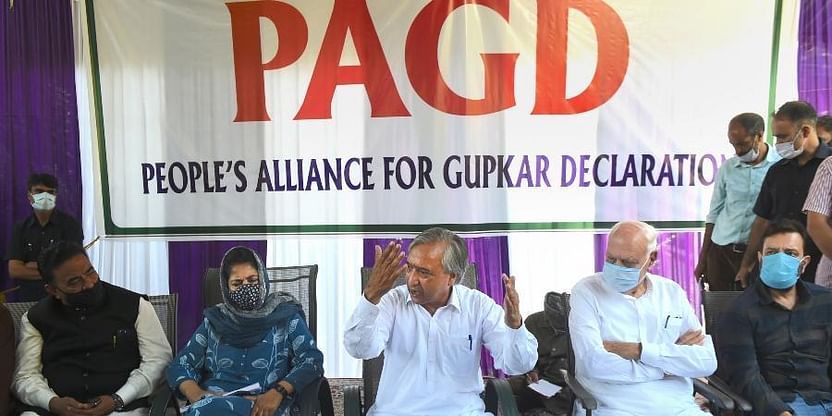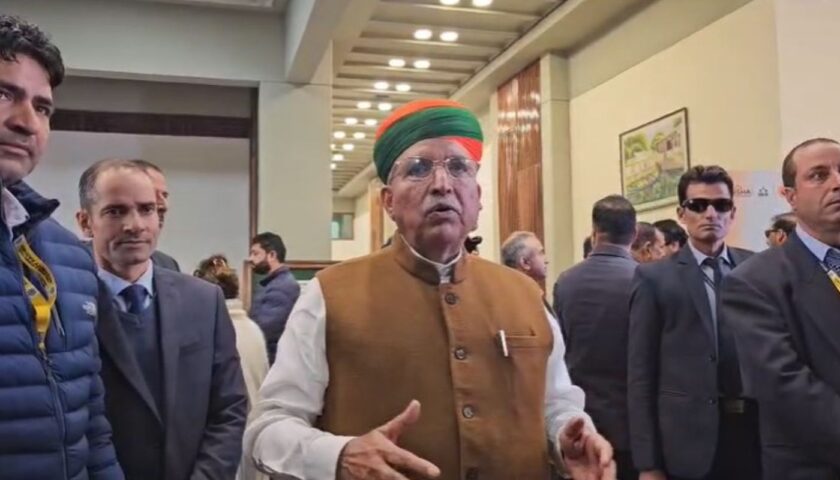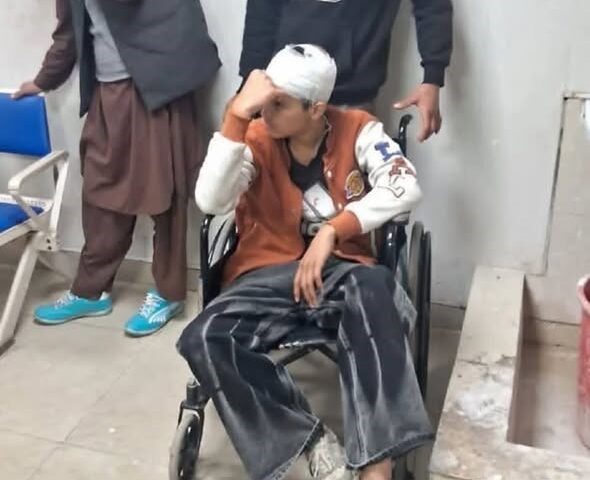‘The claims in a recently released report by the Union Home ministry are far from the reality. The reality is that there is a systematic disempowerment of the people of Jammu and Kashmir that is continuing to happen, through bureaucratic rule’, PAGD spokesman and senior CPIM leader Mohammad Yousuf Taragami.
The People’s Alliance for Gupkar Declaration today rejected the latest report of the Home Ministry that said Narendra Modi Government erased the pain of the people by removing the provisions of Article 370 from Jammu & Kashmir and Ladakh. The PAGD called the report fabricated, concocted, and far from reality.
The PAGD said the presence of Article 370 was not an impediment to the overall development of the State as claimed by the government. “The claims of the BJP government that the abrogation of Article 370 and downgrading of a state with special status into two union territories has paved the way for new industries, created new employment opportunities, decreased terror incidents, brought an atmosphere of peace and security, nurtured democracy, eradicated corruption, brought new Central laws for the betterment of people in this region are nothing but a concocted and fabricated stories while the ground situation belies these claims,” says the PAGD spokesman and senior CPIM leader Mohammad Yousuf Taragami.
The PAGD is an amalgam of six different political parties including the National Conference, People’s Democratic Party. The PAGD was formed to fight for the restoration of Article 370 in Jammu and Kashmir.
“The claims in a recently released report by the Union Home ministry titled “The dream of one nation, one law, one symbol fulfilled: After effective removal of the provisions of Article 370, the picture has changed: a new start in Jammu & Kashmir and Ladakh” are far from the reality. The reality is that there is a systematic disempowerment of the people of Jammu and Kashmir that is continuing to happen, through bureaucratic rule, Taragami added.
“The projects mentioned in the booklet are mostly approved by the earlier governments but shown to have been the outcome of abrogation of Art 370. Reality is that Nashri Tunnel, Zojilla Tunnel, the establishment of 50-degree colleges, and various medical colleges are projects approved much before the abrogation of Art 370,” he added.
On 7 November 2015, Prime Minister Narendra Modi in Srinagar announced a reconstruction program during the PDP-BJP coalition government of about Rs 80,000 crore known as the Prime Minister’s Development Package, to strengthen the social-economic infrastructure and for the development of Jammu & Kashmir. “It is claimed that after the re-organization of the erstwhile state, 53 projects of Rs 58,477 crores in J&K and nine projects of Rs 21,441 crore in Ladakh are under progress which is part of the PM’s 2015 package. How can you attribute this progress to abrogation of Art 370?,” he asked.
“Similarly, the BJP government is boasting of implementation of various laws, like Land Reforms and RTI Act which is claimed to have been effective now. This is a blatant lie as the State of Jammu and Kashmir was a pioneer in implementing the revolutionary land reforms laws which no other state has done except Kerala to some extent. Similarly, the erstwhile state’s own RTI Act was stronger than the Union law. Its repeal when Article 370 was read down has led to chaos and complications,” Taragami added.
On the employment front, we lag far behind and have assumed the highest unemployment proportion as compared to the pre-August 2019 period. The filling up of vacancies is a routine exercise which was being done earlier also and now attributing it to the post abrogation era is beyond our comprehension. Whichever way we look at it, the removal of special status and of restrictions on land purchase by outsiders will not add an iota of employment; on the contrary, it will most likely cause a reduction in employment in the region, even as land passes into the hands of rich outsiders from Delhi or Mumbai. The unemployment rate is highest in India in the last 45-years and in J&K it is worse than that.
Prior to the abrogation of Article 370, not only had Jammu and Kashmir kept pace with the other States in improvement in human development indices (HDI), some of the indicators pertaining to literacy rates, marriage and fertility, child sex ratios, and school attendance rates for girls over six years of age were relatively better than those for Uttar Pradesh, Bihar, and Jharkhand.
“In Jammu and Kashmir, the percentage of women with bank accounts increased from 22 percent to 60 percent, which, if anything, compares well with the all-India average and appears to be better than the increases in Bihar, Haryana, Andhra Pradesh, Telangana, Odisha, Uttarakhand, Rajasthan, Madhya Pradesh, and even Karnataka. In fact, the figure for Jammu and Kashmir was ahead in social indicators as that of Gujarat in 2015-2016, whose model of development has been held as a beacon by the BJP, worthy of emulation by other States,” Taragami added.
“The slogan of “development”, in short, is a red herring. Why then has the central government done what it has? The common answer is that it has been a long-standing demand of the Hindutva elements, with an eye no doubt on altering the demographic composition of the only Muslim-majority state in the country, rather like Israel is doing on Palestinian lands,” Taragami added.




